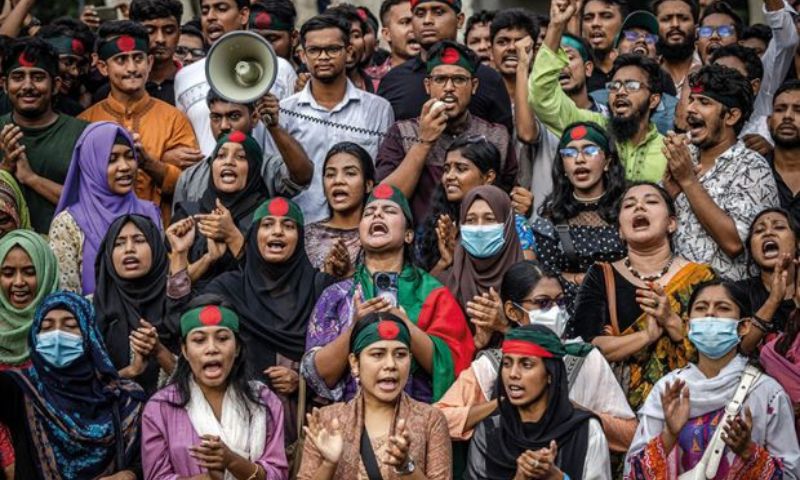DHAKA: Bangladesh has banned the student wing of ousted Prime Minister Sheikh Hasina’s party, citing its involvement in violent attacks during demonstrations that led to her removal from power.
Hasina fled the country in August as thousands marched towards her official residence, ending her 15-year rule marked by widespread human rights abuses.
The Awami League’s student organization, known as the Chhatra League, has been accused of supporting Hasina’s authoritarian regime, which was characterized by mass detentions and extrajudicial killings of political opponents.
A government notice stated that the Chhatra League was involved in “murders, persecution, torture… and many other activities that threaten public security” and was outlawed under anti-terrorism laws.
Initially, peaceful protests that began in July against Hasina’s government turned violent when Chhatra League activists attacked student demonstrators on university campuses. These actions heightened public anger, ultimately leading to Hasina’s overthrow weeks later. Official estimates indicate that more than 700 people were killed in the ensuing unrest, primarily in clashes between police and anti-Hasina protesters.
This month, a Bangladeshi court issued an arrest warrant for Hasina, who fled to neighboring India on the day of her ousting. Following her regime’s collapse, dozens of her allies have been arrested, facing accusations related to the police crackdown. Former cabinet ministers and senior Awami League members have been detained, and her government’s appointees have been removed from key institutions, including the courts and the central bank.
Since fleeing the country by helicopter, Hasina, 77, has not been seen in public, with her last known location being a military airbase near New Delhi, India. Her presence in India, which was a major supporter of her government, has angered the interim administration in Bangladesh.
Dhaka has revoked her diplomatic passport, and the two countries have a bilateral extradition treaty that could facilitate her return for a criminal trial. However, the treaty includes a clause that could prevent extradition for offenses deemed to have a “political character.”
Hasina was succeeded by Nobel Peace Prize winner Muhammad Yunus, who took charge of an interim government shortly after her departure.
The 84-year-old microfinance pioneer has described the task of restoring democratic institutions as “extremely tough,” stating he inherited a “completely broken down” public administration and justice system that requires comprehensive reform to prevent a return to autocracy.























